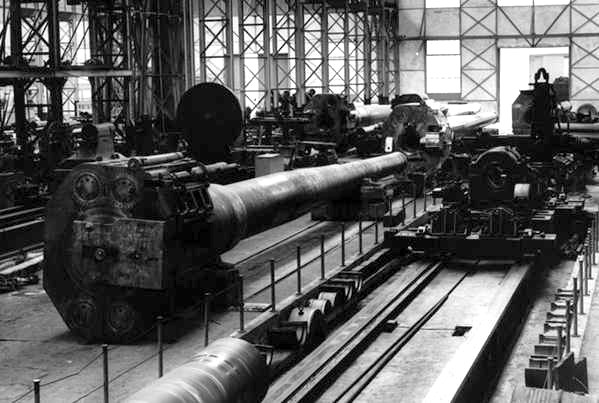https://en.wikipedia.org/wiki/Battle_of_Leros#BackgroundDuring Italian rule, Leros, with its excellent deep-water port of Lakki (Portolago), was transformed into a heavily fortified aeronautical and naval base, "the Corregidor of the Mediterranean", as Mussolini boasted.
POD: Mussolini decides to spend the money on a new fortress in Eritrea instead, so that he may be able to shut down naval traffic through the Bab-El-Mandeb Strait
The central piece of the puzzle would be the "Cannone da 381/50 Ansaldo M1934":

(OTL, it was used mainly on the Littorios)
With an effective range of 42km, they are more than capable of reaching targets on the other side:
They would be housed in large turrets build to withstand most hits.
The guns themselves would be supported in their efforts by a mix of minefields, torpedo boats, midget submarines and aircraft.
Since the Straits of Messina would also be extremely hazardous to convoys as well, the only other options for supplying a force in Egypt from Britain would be overland from Kenya or Iraq.
Bypassing Italian East Africa by land would be very difficult, as railroads from Kenya only reached southern Uganda at this point, leaving a large gap between them and the sinlge-track crappy railroad that was in Sudan, which itself ran only up to Wadi Halfa (from there, supplies would have to be loaded up on the Nile and transported downriver until they reached the Egyptian rail network)

Iraq was equally problematic, as the railroad only ran to Baghdad, meaning there would be a vast desert to cross until those supplies reached ports in French Syria.
So, in theory, blocking the Red Sea would make reinforcing Egypt incredibly difficult, and require the Anglo-French to consistently run convoys through the Messina Strait, where Italian torpedo boats, submarines and aircraft could act as force multipliers in any naval engagement (see e.g. Operation Pedestal).
Thus, much like the Maginot Line, a "Corregidor on the Red Sea" would be built not to directly confront enemies, but to force them to go a different, more favorable route (in the former case, through Belgium).
So, questions:
1. Any flaws in the above logic ?
2. Could this blockade actually block the Red Sea?
3. What are the likely British countermeasures?
Last edited: